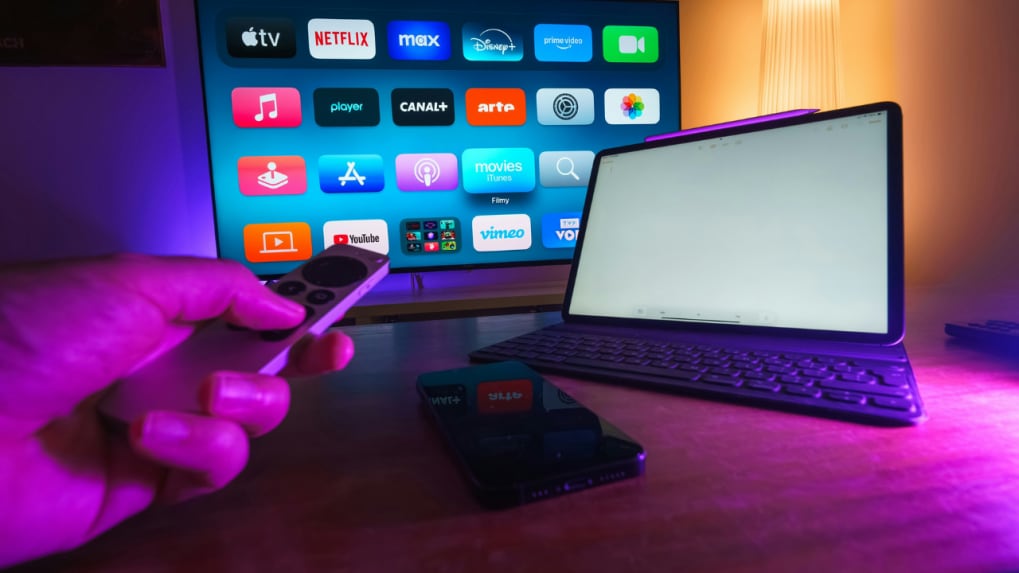Govt's OTT ban likely to fuel VPN use and piracy surge, say experts
With 25 platforms, including ALTT, abruptly taken offline, experts warn that banning content doesn’t curb demand, but it would only push viewers to illegal streaming, torrents, and VPN-enabled access, weakening regulatory impact.
ADVERTISEMENT
The Indian government’s decision to block 25 OTT platforms for allegedly streaming obscene content may have been aimed at protecting public morality and ensuring content compliance, but digital rights experts and media observers warn it could have a counterproductive impact-- fueling an increase in VPN use, piracy, and unregulated content consumption.
The Ministry of Information and Broadcasting (MIB) invoked Section 69A of the IT Act to issue blocking orders against these platforms, which include Ekta Kapoor’s ALTT, Ullu, and several regional and small-scale streaming services. While the government maintains this action was necessary to curb obscene and sexually explicit content—especially content involving or affecting minors— critics say that taking entire platforms offline is akin to killing the messenger instead of fixing the message.
“Banning these apps isn’t going to make the demand vanish,” said Sourya Banerjee, Associate Director- Public Policy Comms, Jajabor Brand Consultancy.
“These platforms thrive because there is massive consumer demand in Tier 2 and Tier 3 cities. Ullu alone has over 27 lakh paying subscribers. If viewers can't access this content on regulated platforms, they will simply turn to torrents, Telegram groups, shady APKs, and VPNs.”
Vinti Jain, CEO of Vin Media, echoed similar concerns. “Blanket bans drive content underground. They don’t solve the problem. Instead, they increase VPN usage, fuel piracy, and force content creators into the grey market. Regulation through transparency and user empowerment—not censorship— is the way forward.”
The government’s reliance on blocking entire platforms instead of targeting specific content has also raised concerns about proportionality. Legal experts say such sweeping measures often fail to address root problems.
Read more: Congress MP Rajeev Shukla slams OTT platforms ban; calls it attack on free expression
Siddharth Chandrashekhar, Advocate at the Bombay High Court, noted, “Blocking an entire platform rather than specific URLs or content items violates the principle of proportionality under Article 19(1)(a). The Constitution protects speech—even if it offends or shocks. The answer to offensive content is better regulation, not complete censorship.”
As piracy becomes easier via mobile apps and free streaming sites operating from foreign jurisdictions, observers say India risks losing control over the very content it hopes to regulate. “Without licensed channels to meet demand, underground alternatives will flourish—and they won't follow even the minimal compliance norms that ALTT or Ullu did,” Banerjee added.
The government emphasized that the intermediaries are responsible to remove or disable access to unlawful information under the Information Technology Act, 2000, and the Information Technology (Intermediary Guidelines and Digital Media Ethics Code) Rules, 2021.
The government highlighted Section 79(3)(b) of the Information Technology Act, 2000, which states that intermediaries lose their exemption from liability if they fail to expeditiously remove or disable access to material being used to commit an unlawful act, upon receiving actual knowledge or notification from the appropriate government agency.
Read more: Govt bans OTTs like Ullu, ALTT, Desiflix, Big Shots for showing soft porn content
Furthermore, Rule 3(1)(d) of the IT Rules, 2021, mandates that intermediaries shall not host, store, or publish any unlawful information prohibited by law, especially concerning the sovereignty and integrity of India, security of the State, friendly relations with foreign States, public order, decency or morality, contempt of court, defamation, or incitement to an offense.
The MIB also invoked Rule 7 of the IT Rules, 2021, which stipulates that an intermediary failing to observe these rules will not be protected by Section 79(1) of the Act and will be liable for punishment under applicable laws. Part III of the IT Rules, 2021, administered by the Ministry of Information & Broadcasting, applies to publishers of news and current affairs content and online curated content on digital media. These publishers are required to adhere to the Code of Ethics annexed to the rules, which prohibits the publication or transmission of content that is unlawful.
Legal experts and industry stakeholders told Storyboard18 that blanket bans on platforms rather than targeting specific content may violate principles of proportionality and free speech enshrined in Article 19(1)(a) of the Constitution. Critics argue that such sweeping actions create a chilling effect on creative expression, dissent, and independent media.
India’s OTT ecosystem, which includes over 40 major and minor platforms, is currently one of the fastest-growing in the world. According to PwC, the CAGR for the Indian OTT market is an impressive 14.32% from 2023 to 2027, far surpassing the global growth rate of 8.4%. The market is poised to double, soaring from $1.8 billion in 2022 to a whopping $3.5 billion by 2027, with platforms like Amazon Prime Video and Netflix amassing millions of subscribers, as they invest heavily in India-specific content.
Experts warn that a regulatory approach focused solely on punitive action may backfire, especially when global platforms and VPN-enabled viewers can bypass restrictions in seconds.


